
For many people, financial success is one part hard work and another part discipline. While there can also be a lot of privilege and luck involved, knowing what not to do when it comes to money can have a huge influence on your long term financial wellbeing.
Whether you’re looking for ways to lower your bills, cut things out of your budget, or just want some money tricks to save cash, remember these 15 phrases as things money experts will never say when it comes to making smart financial moves.
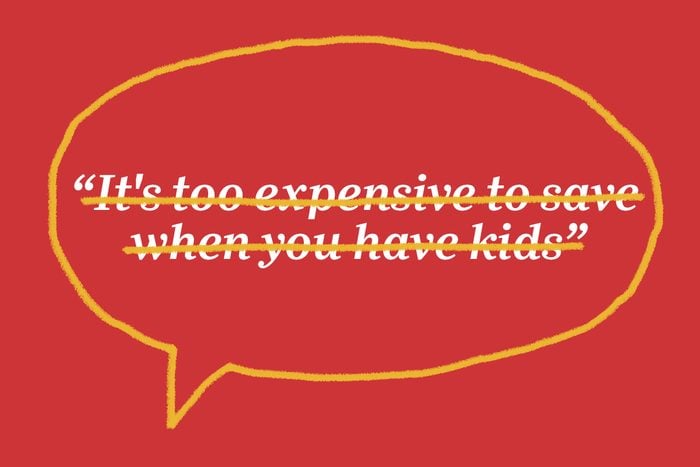
“It’s too expensive to save when you have kids”
Even though having children means many new expenses—from childcare to medical bills to extra groceries—that doesn’t mean it’s safe to stop saving money.
“Having kids who depend on you means you have even more reason to build up savings and create financial security for now and in the future,” says consumer-finance expert Andrea Woroch.
Providing financial security for your children may mean saving for emergencies, retirement, college, and unexpected healthcare bills such as braces. “Finding extra room in your budget may seem impossible when you have kids, but there could be areas in your monthly spending where you’re wasting money without realizing it.”
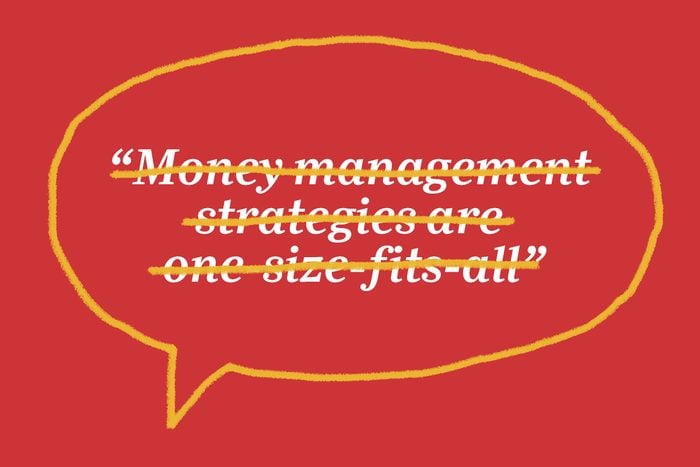
“Money management strategies are one-size-fits-all”
Your mental health can have a big impact on various aspects of your life, including your finances. The idea that everyone should manage their money the same way sets many people up for failure. (These are some money rules you should break.)
Daniella Flores, Founder of ILiketoDabble.com, says that failing to acknowledge the impact of mental health struggles on a person’s finances is a mistake. “It can be very damaging to someone trying to get their financial ducks in a row, but struggling in a way that others don’t experience.”
Flores spent years struggling and feeling shame for the way her own mental health issues (PTSD, ADD, and bipolar disorder) impacted her financial life. “I thought the way I handled money throughout my life meant that I was bad with money,” she says. But her therapist showed Flores how her mental health affected her finances, and she was able to change her financial management strategy to suit her needs.
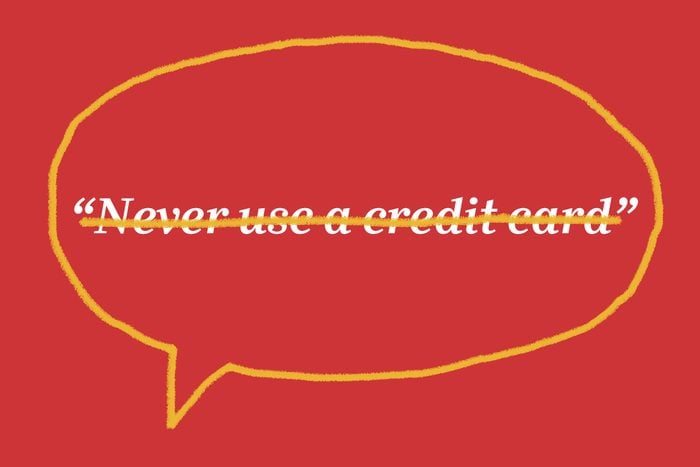
“Never use a credit card”
You might find the odd personal finance personality that recommends avoiding credit cards in favor of debit cards. Yet the anti-credit card position is one that most money pros believe to be misguided.
Lauren Keys, co-founder of TripOfaLifestyle.com, says “When you use a credit card, you can tap into tons of benefits like cash back on purchases, an increased credit score (with proper use), fraud protection, extended warranties and return windows, free roadside assistance, and more.”
However, she does note that it’s critical to avoid overspending and pay off your credit card balance every month so you don’t have to dig yourself out of debt. Doing so can help you enjoy the benefits of a credit card while avoiding high-interest fees. Keys suggests using your credit card as a debit card—only spending the money you have available now.

“I can guarantee your investment will beat the market”
A smart investment strategy has the potential to help your savings grow over time. Yet no financial advisor, no matter how experienced, can tell the future. And if you come across anyone who tries to promise that an investment will beat the market, it’s a giant red flag.
Sandy Yong, the award-winning author of The Money Master, says, “Financial experts know that the stock market can be volatile and no one can predict the market. Also, the historical performance of a fund or a stock does not predict the future.”
Investing your money in the stock market always involves some level of risk. There’s no such thing as a guarantee where investing is concerned. Here are other investment mistakes first-timers make.

“You get what you pay for”
You may have heard it many times, but it doesn’t constitute sound financial advice. There are plenty of times where paying a lot of money for a product or service doesn’t make good financial sense.
“Any financial expert worth their weight knows that you do not always get what you pay for,” says certified financial education instructor and founder of Frugal Confessions, Amanda L. Grossman. “The fact is that you can pay a lot for something that is worth very little, and you can pay a little for something that is worth a lot.”
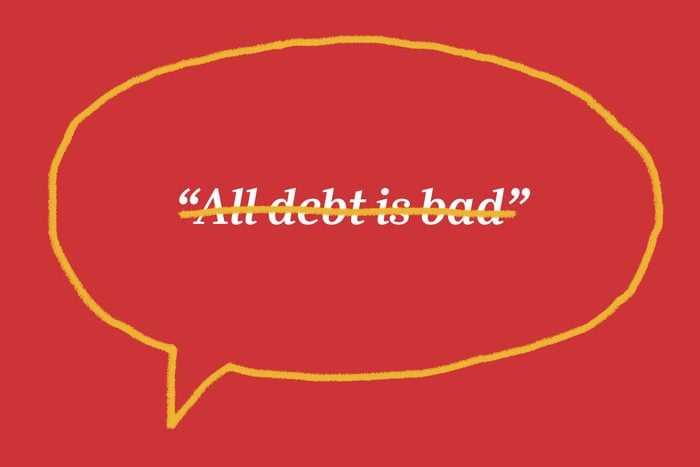
“All debt is bad”
There’s no question that high-interest debt can put your household budget under stress and lead to bad credit. However, all debt is not created equal, and there are times when borrowing money could be a good financial move in the long run.
“Debt is a very valuable tool that can unlock financial flexibility, and more importantly, can enhance your returns if used for the right purposes,” says Kyle Kroeger, owner of TheImpactInvestor.com. “Debt tied to an asset that is income-producing and/or has the ability for capital appreciation is one of the most powerful things you can do with your money.”
Kroeger does recommend the use of caution where debt is concerned. “Of course, debt used to purchase consumable goods like clothing, electronics, etc. is not good and should be avoided in all circumstances,” he says.
When you do borrow money, good credit can work in your favor.
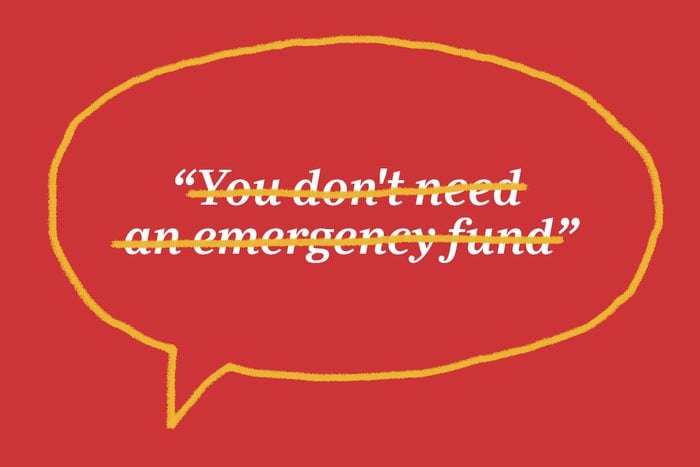
“You don’t need an emergency fund”
One subject that virtually all financial experts agree on is the need for emergency savings. “There are few absolutes in personal finance—because personal finance is personal; however, the emergency fund is one of the few exceptions,” says Vee Weir, owner and founder of Vee Frugal Fox. “Most people can’t afford a $400 emergency!”
Weir says that with inflation, high cost of living increases, and life in general, it’s important to have at least one month’s worth of expenses saved up.
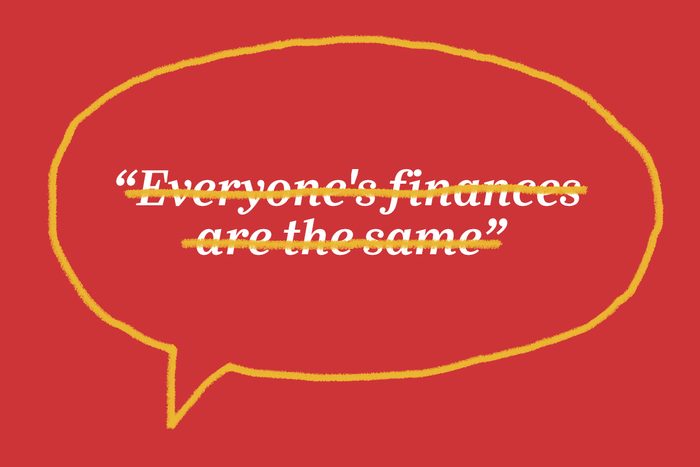
“Everyone’s finances are the same”
There seems to be a wide range of general personal finance rules and strategies. The truth, however, is that no two people’s finances are the same. Understanding that your situation is unique can go a long way toward helping protect both your financial and mental health.
“Your financial plan should reflect you and your life,” says Jay Zigmont, PhD, CFP®, and founder of Live, Learn Plan. “Comparison to others, general rules, or averages results in an apples to oranges comparison.”

“If it seems too good to be true, it might be a once-in-a-lifetime opportunity”
Whether you’re a new investor or a seasoned professional, it’s important to remember that risk and return go hand in hand. So, if you come across an investment opportunity that seems unbelievably good, it might just be unbelievable.
“Consider this,” says John Hagensen, MSFS, CAS, CIS, CFS, CTS, and owner and managing director of Keystone Wealth Partners, “Why would a stranger offer you this unique opportunity rather than keeping it a secret for their own benefit? If an investment truly offered the safety of government bonds with the potential growth of stocks, all of the country’s available capital would be allocated there.”
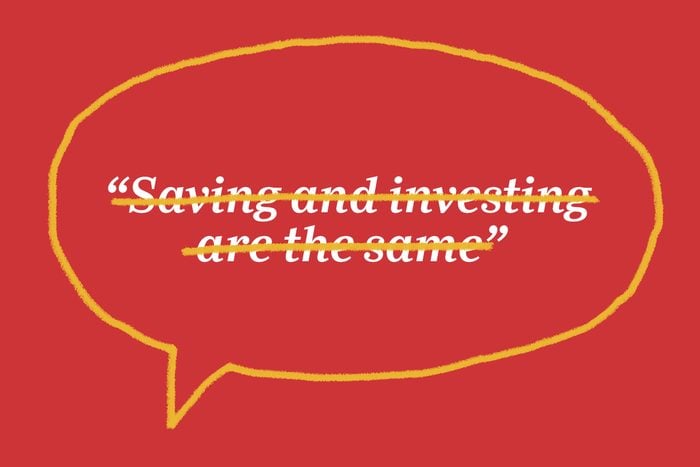
“Saving and investing are the same”
These two words are used to describe what people do with money they’re not actively spending, but they are entirely different actions. And while they both have their benefits, money experts are more invested in, well, investing.
“[Money experts] understand that their savings have to be invested in order to have the potential for compound growth,” says Wes Moss, Certified Financial Planner and author of You Can Retire Sooner Than You Think. “Savers have a fear mentality, stash their money away in the bank, and never really get momentum from their assets. Investors, on the other hand, have their assets invested in areas that, over time, have produced high single-digit or low double-digit annual returns.”
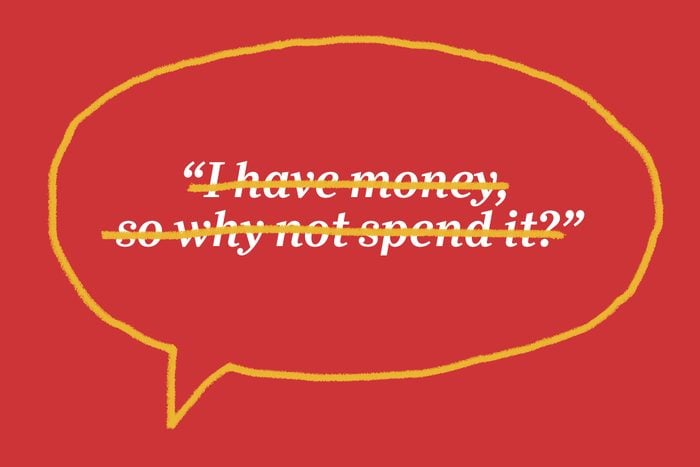
“I have money, so why not spend it?”
It’s okay to treat yourself with your extra income, but money experts know that careless or unnecessary spending can turn into an ongoing self-destructive tendency. Bob Finley, owner of Virtual Asset Management, says that his high net worth clients question whether a purchase will really improve their lives before following through.
“Most of my clients don’t splurge on investments,” says Finley. “Despite being able to afford first class, most of my clients always fly coach because they know the cost of first class is multiple round trips in coach.” Many financially successful people also use other strategies to save on travel, such as Tripadvisor, which can help you with easy price comparison tools and advice from other travelers.

“I’m not smart enough”
A 4.0 GPA isn’t a requirement for success. In fact, a study showed that the average college GPA of American millionaires was 2.9. “Those with exceptional academic performance can evaluate risk too stringently, coming up with dozens of reasons why an idea will not work, and refusing to act,” says James Whittaker, author of Think and Grow Rich: The Legacy.
“However,” he continues, “the most extraordinary achievers spend more time focusing on the opportunity. Obsessed with mission success, they surround themselves with the people who can bring their dream to life, and they get to work on changing the world.”

“Can I afford it?”
Instead of asking if they can afford to purchase something, financial experts teach their clients to ask a more important question: Is it in the budget? Being purposeful with spending can help people afford the things that matter most to them. Shopping around at multiple stores (like Target vs. Walmart) to find the best deal on expenses that are in the budget can also be helpful.
Julie Ramhold, consumer analyst with DealNews says, “Those with little wealth should ask themselves how soon they can begin investing in assets, while those with more wealth can ask things like, ‘Can I pay for this big-ticket item in cash?'”
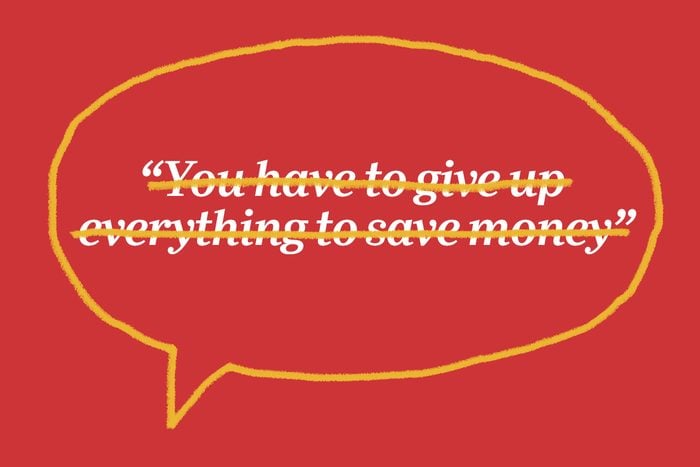
“You have to give up everything to save money”
“Stop splurging on indulgences” and “Avoid getting the add-ons” are common sentiments you’re likely to hear in the world of financial advice. But Jimena Huaco—MBA, director of InSight and associate director of the Career Collaborative at Champlain College—disagrees. “The reality is, budgeting only has a chance at being successful if we can stick with it in the long run. If we only associate budgeting with constant restriction, we’ll hate budgeting and end up avoiding it altogether.”
Instead of an all-or-nothing approach, Huaco recommends exercising balance where personal finances are concerned. “If we need to make adjustments,” she says, “making one decision to get a roommate, for example, versus constantly having to decide to not get the latte on our way to work can go a long way towards a healthier association with budgeting.” Here are other ways you can save money effortlessly.
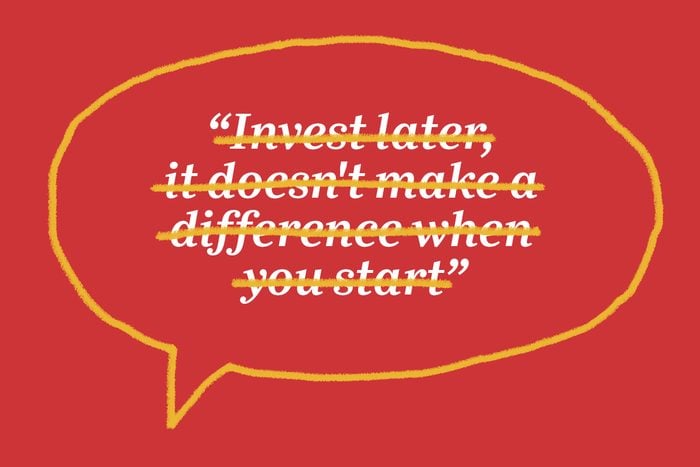
“Invest later; it doesn’t make a difference when you start”
When it comes to investing for retirement, the sooner you can begin, the better. Delaying your investment start date can cost you a lot.
“Investing favors those who start early,” says Andy Hill, Family Finance Coach and founder of MarriageKidsandMoney. “The longer you invest, the more time compound interest can work in your favor.”
Hill gives an example of how someone who starts investing $200 per month at age 25 could potentially have $1,000,000 by the time they turn 65 years old. But someone who waits just 10 years (35 years old) to start investing the same amount would only have around $400,000 by age 65.
Do you dream of retiring early? Read how this mother jump-started her retirement savings with three simple budget cuts and saved $13,000 per year in the process.
Sources:
- Andy Hill, founder of MarriageKidsandMoney.com
- Andrea Woroch, consumer finance expert at AndreaWoroch.com
- Daniella Flores, founder of ILikeToDabble
- Lauren Keys, co-founder of TripOfALifestyle
- Sandy Yong, award-winning author of The Money Master
- Amanda Grossman, certified financial education instructor and founder of Frugal Confessions
- Kyle Kroeger, owner of The Impact Investor
- Vee Weir, owner and founder of Vee Frugal Fox
- Jay Zigmont, PhD, CFP®, and founder of Live, Learn, Plan
- John Hagensen, MSFS, CAS, CIS, CFS, CTS, Owner and Managing Director of Keystone Wealth Partners
- Wes Moss, Certified Financial Planner and author of You Can Retire Sooner Than You Think
- James Whittaker, author of Think and Grow Rich: The Legacy.
- Julie Ramhold, consumer analyst at DealNews
